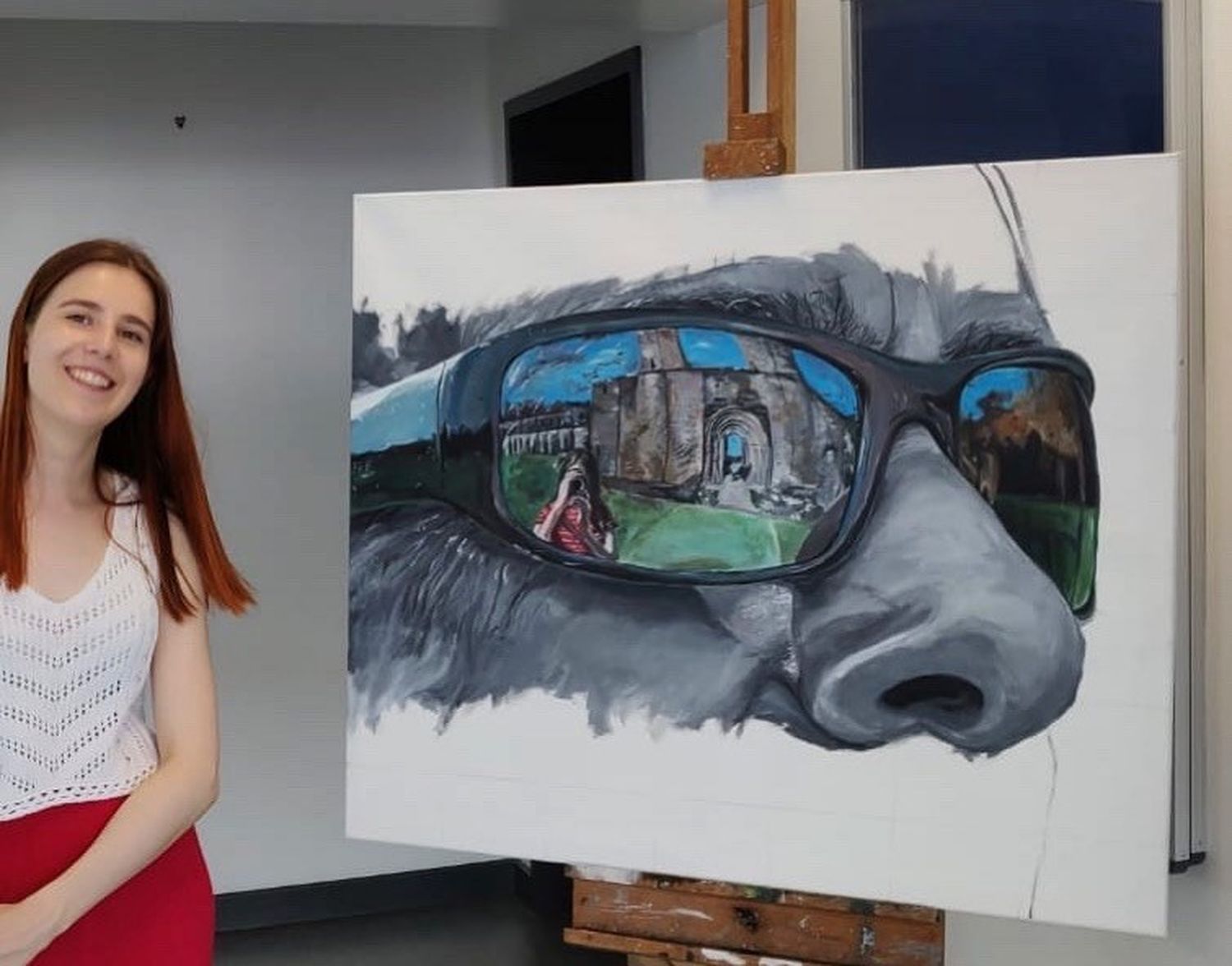As a child, I was never very good at drawing pretty things. I couldn’t really get the knack for it – you know, painting flowers, or cute animals with large eyes or nice patterns like many kids do. I couldn’t picture them in my head, fully formed and beautiful, as others seemed to. I don’t know if, at the time, I lacked the imagination to create such things or if I was simply waiting for the right subject to paint – although I like to think it was the latter. Don’t get me wrong, it wasn’t for lack of trying that my artistic endeavours tended to fail. I doubt, even, that my drawings were any worse than the average child’s. But still, it did always make me feel a little down – particularly due to my determination that I should be good at it. So, art hasn’t always been a natural coping strategy for me, it was more of a frustration; it was only later that I discovered how effective it could be.
“[I]t wasn’t hard for me to pick up a pencil and allow time and negative emotions to wash over me”
At age eleven I delved deeper into portraiture. Unlike the artistic pursuits of my younger years, portraiture was something that drew me in and kept my focus in a way which other subjects had never been able to do. Unlike flowers, I found that faces had an infinite number of fascinating details contained within them. They were rarely perfect, which to me always added to their allure. I enjoyed exploring the human condition, and I practised continually throughout my teenage years to improve my skill at drawing portraits. I have a sketchbook full of faces gathering dust in a cupboard somewhere to prove it.
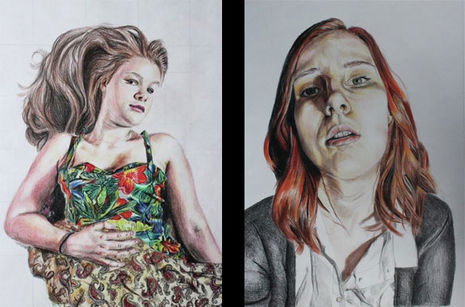
Beyond my ambition to become better at drawing, art gave me something to do. It ate up my time. Whenever I was lonely or struggling with difficult friendships (which seemed to be often), it wasn’t hard for me to pick up a pencil and allow time and negative emotions to wash over me. You can empty your mind when you are drawing; it takes an entirely unique type of thought, which somehow just came naturally to me. As someone who has lived with – undiagnosed, until this year – ADHD all my life, the ability to focus was not exactly something I was normally blessed with.
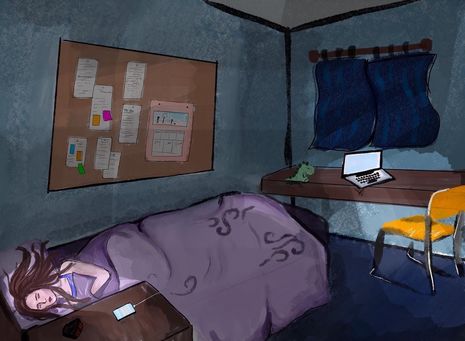
This different mode of thinking was invaluable to me during schooltime. I struggled with quite severe anxiety for a time, which was inexplicably linked to being in school. Equal parts academic pressure and personal perfectionism nearly made me fall apart. Art gave me something to cling on to. While I could barely sit through my English lessons without feeling panicked and needing to escape, my time spent in the art classroom was as easy and relaxing as it ever had been. Time moved differently there; it always has. So, I wasn’t inclined to give it up.
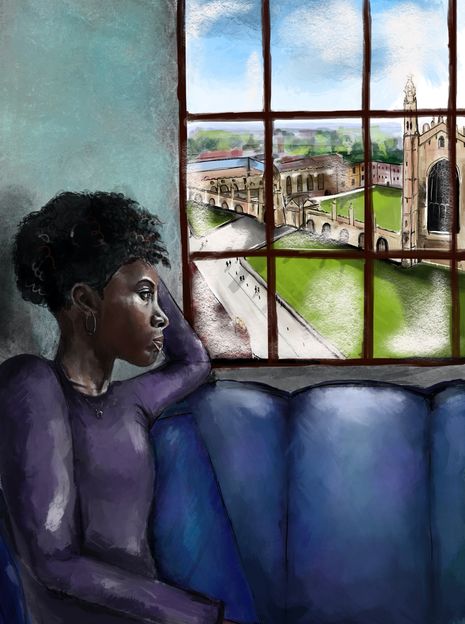
I was asked to give it up. Or rather, many people just expected me to. I was academic so – in an experience common with many others – it was rather accepted that I would take four equally traditional and unremarkable A-levels and avoid the arts like the plague. It doesn’t really matter how many times my art teacher told people that art was an academic subject, no one really believed that. I can remember hiding my intention to take art further, listening to people commenting on others who had done so – ‘why waste an A-level on art? She’s academic, isn’t she?’ – with my poker face on. But even then, I knew I couldn’t. I didn’t want to allow the steamroller that is the education system to crush the one thing that gave me any relief from the strain and stress of school.
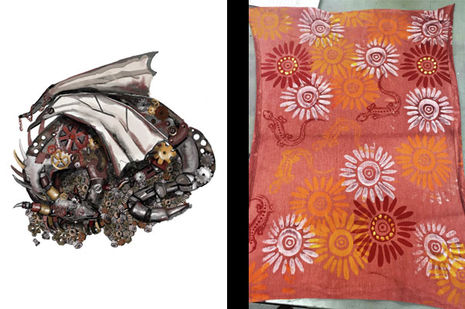
Art hasn’t always aided my mental health. There have been times when, if anything, my beloved coping strategy has only added to my troubles. The dichotomy of art versus academics, for example, was something that has plagued me again and again. I think it is possible that if I lived in a society that wasn’t so focused on assigning a hierarchy to areas of study, I could be studying art somewhere right now. I don’t regret not doing so, exactly. But I suppose in this way, the splintering of my personality – as someone who loved to draw, and someone who loved to argue and reason, and read and write – harmed rather than helped me. Perhaps if I had never gotten into art, all my decisions about my future would have been easier. Perhaps… but it doesn’t necessarily mean they would have been any better for being easier. Besides, this way I got to take a year out, studying an Art Foundation – a very welcome break from exams and essays. I learned to screen print, and even to create those pretty and alluring patterns I had failed to perfect in primary school. My younger self would be bursting with pride.
Even at Cambridge, I have continued to use art to deal with stress. These days, I illustrate: I became a Staff Illustrator for Varsity back in December. I also learned to crochet – something very in keeping with my Textiles Foundation, and something I could work on over the lockdown after my year was cut short. So, the role which art plays in my life is always changing, sometimes playing a more central role than other times. But, whatever happens, I know it will remain important for maintaining my mental health.

